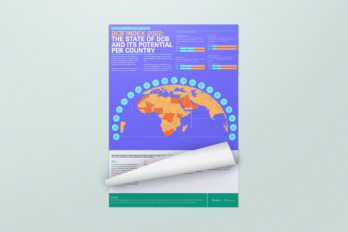
Today, Evina features Frank Van Rotterdam, founder of Blue Trust Mobile, the Dutch market Regulator. He highlights the importance of organisation and protection on the market to make it fully sustainable.
Starting from the end user, 17 million people are in the Netherlands, and more than 90% of them own a mobile phone. KPN is leading the market with 40% of mobile network operators’ market shares in the Netherlands, followed by Vodafone with 30,6% and T-mobile/Tele2 with 29%. The market mainly works with six payment gateways.
1) Could you introduce yourself in few words?
I’m the founder of Blue Trust Mobile, which is the Dutch market Regulator. Since 2011, we offer compliance services and we are responsible for maintaining market regulations for premium mobile in the Netherlands. With over 85% reduction in consumer complaints, we are happy with the success of our system. With increasing pressure on Operators/Gateways to know what financial flows are active on their network, we are now more and more specializing in Know Your Customer (KYC) and compliance.
2) How is the Dutch market organized and what is your role in this market?
No organization (Operator, Gateway, Content Provider) wants to harm consumers or receive bad publicity because of fraud. Based on the principle of Knowing Your Customer, we shield the Dutch market against fraudulent/criminal entities. The Dutch market is based on the same principles as other European markets. Both Dutch law and European law set the ground rules for Dutch Premium Mobile.
More specific than general law, is the Dutch code of conduct. In the Netherlands, this is the outcome of a form of self-regulation by the 3 different types of parties present on the market. We call these 3 types of members the different blood groups: Operators, Gateways and Content Providers. These 3 groups collectively decide on the code of conduct. This code is then mandatory for all Content Providers, Gateways and Operators.
Our role is then two-fold:
We screen content providers before they are allowed to enter the market.
We monitor advertising, marketing and payment flows together with customer complaints and Gateway logfiles.
By screening we prevent parties with fraudulent or even criminal intent from entering the market and networks. By monitoring we are helping entities to become and stay compliant.
In case of an observed offense, we summon the offender to retify the service within two working days. In over 95% of the cases, this solves the issue. If not, we present the case to an independent body called the Enforcement Committee. This committee has a firm set of measures to sanction violations of the Code of Conduct: fines, refunds demands or blacklisting an entity from the Dutch Market.
3) What is the history of the Dutch market and how fraud impacted its evolution?
The Foundation was founded in the early years of this century, when consumers suffered from SMS / IVR scams. With a clear set of rules on advertising, the market became relatively stable.
Over the years most entities started to use affiliate-network for their promotion on a CPA model. As a result, more misleading advertising was added to the market. Publishers are operating anonymously since the affiliate networks are hiding their identity.
The execution power of those publishers was significant, and they were selling their traffic to the highest bidder. CPA’s fees increased to a level that only entities with high margins could afford. High margins came from low cost-base driving towards less quality products.
A couple of years back publishers switched from misleading advertising to technical fraud. Starting with button overlay’s; iframes and apps auto-subscribing users. These fraudulent campaigns became more sophisticated and harder to fight.
Most entities stopped working with affiliates due to changed regulations in the Netherlands.
This cut off the revenue of the publishers, which triggered them to upgrade to become content provider.
The biggest step in fraud prevention in the Netherlands is base registration which includes an ultimate beneficial owner check. This makes it very hard to enter the market with a disposal entity that can be easily decommissioned when legal issues arise.
4) How the market has organized itself to fight against fraud?
The market was struggling to organize itself. Therefore,the code of conduct was produced by the combined entities with Blue Trust Mobile as the compliance office.
There are now two main pillars:
Base-registration
Anti-fraud tooling and monitoring
As in any financial transactional system, anti-fraud tooling is a must have. Both to protect consumers and for companies to comply with regulations. This kind of tooling in combination with Base registration is key.In the most recent change of the code of Conduct this anti-fraud tooling is a requirement at the Gateway level.
The Base Registration gives clear insight in the entities currently active in the market. Fraudulent entities just spins-off 5 entities that rotate the new subscriptions on a monthly basis.
Self-regulation does not work for entities that do not adhere to any rule, so we need a solid identification at the gate and solid monitoring once in.
Several European operators have started working with preferred flow for a limited number of entities. In the Netherlands we have something similar for entities that are exclusively operating on own media buy.
We monitor their acquisition from banner to conversion and in combination with the previously mentioned base registration and anti-fraud tool this results in traffic with no fraud and very low complains rates.
5) Have you seen an impact since EVINA has been active on the market?
Evina has proven to be very effective in fraud prevention. Evina helped the market to get cleaner by detecting fraud and making us able to detect fraudster in the incoming traffic. Fraudsters lost their revenue and started to leave the market.
6) How do you think the Dutch market will be in 18 months?
Governments and financial regulators are pressing companies to know their customers and to know who is profiting via their systems/networks. This trend is also clear in premium mobile. This rising interest in fraud prevention goes hand in hand with compliance.
In 18 months from now, we should have removed the last entities that are doing fraud. Hereby further providing the entities with a sustainable business model the opportunity to work in a clean, stable market.
But let’s agree that some level of fraud and misleading promotionswill always be present in any payment system and therefore requires monitoring and enforcement.
However, with the combination of Base Registration and Anti-fraud tooling/monitoring it is possible to identify entities with who it is safe to work on a Trust & Verify basis.
The result is then clean traffic, where the Content provider, Gateway and Operators do sustainable business. Hereby providing a level playing field for businesses and highly reduced risk for operators/Gateways in terms of KYC regulations.
7) In terms of regulation, do you have any recommendation for other countries?
Everybody’s horror is a headline like “xxxxxxx facilitates criminals/terrorist via their payment systems”.
In our opinion, in order to minimize this risk and also to shield consumers;a stable, compliant and sustainable market requires three things:
- Base Registration
- Adequate anti-fraud tooling
- Constant monitoring
The base registration is especially important for operators, in today’s world it is unacceptable to facilitate a billing solution without knowing the ultimate beneficiary.
Anti-fraud tooling and monitoring are a must-have for all parties in the value chain. This is especially important to maintain a level playing field between the various players in the market. It only takes a small step towards fraud or misleading to increase revenue. These small steps seem insignificant, but they always add up to a race to the bottom.
We’re happy to share our learnings.
Anyone that is struggling with fraud or is facing a market shutdown and looking for a clean restart, feel free to contact us via [email protected] or www.bluetrust.nl. We can provide in house developed software, systems and services. Within the right circumstances, this can be cost neutral.
